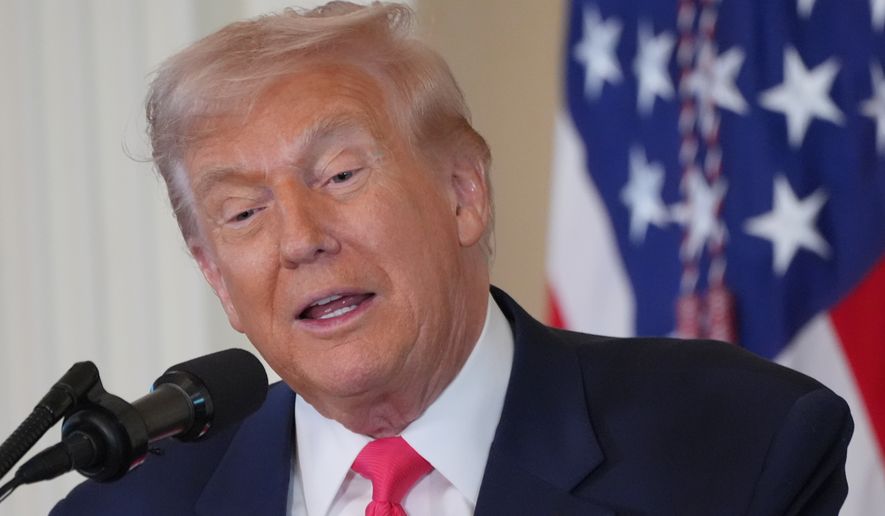President Trump has signed an executive order to reduce tariffs on grocery items that have risen in price or cannot be grown easily in the U.S.
The order covers a wide range of agricultural products, including beef, tomatoes, coffee and bananas.
“I have determined that certain agricultural products shall not be subject to the reciprocal tariff imposed [under previous orders],” Mr. Trump’s order, signed Friday, said.
Mr. Trump issued the order as he tries to fulfill his campaign pledge to make life more affordable in the U.S.
Democrats won major elections earlier this month running on an affordability mantra, saying the White House wasn’t living up to its promises as inflation remains stubborn and some businesses say Mr. Trump’s tariffs are a cost burden.
The order will be viewed as a tacit acknowledgement that tariffs, when imposed, can induce costs on U.S. importers that are sometimes passed along to consumers.
For months, Mr. Trump has characterized tariffs as something paid by foreign countries as the cost of doing business in the rich American market.
“Tariffs are a tax hike on foreign countries that again have been ripping us off,” White House press secretary Karoline Leavitt said in March.
More recently, Mr. Trump said U.S. consumers “might be paying something,” and Treasury Secretary Scott Bessent teased the tariff relief as a way to ease costs at the checkout counter.
“You’re going to see some substantial announcements over the next couple of days in terms of things we don’t grow here in the United States — coffee being one of them, bananas, other fruits, things like that,” Treasury Secretary Scott Bessent told Fox News on Wednesday. “That will bring the prices down very quickly.”
Critics said if tariff relief brings down prices, then imposing them in the first place must have been a burden on Americans.
“So, the administration that said all year that their tariffs don’t affect U.S. consumer prices — and mocked anyone who disagreed — NOW says that cutting those same tariffs will spur consumer savings? Comical stuff,” Scott Lincicome, a vice president of economics at the libertarian Cato Institute, wrote on X.
Earlier this week, the Trump administration struck deals with Argentina, Guatemala, Ecuador and El Salvador that will slash tariff rates on goods that cannot be grown in bulk in the U.S., such as bananas.
Domestic industries for certain fruits and coffee don’t really exist, so they don’t need protection from tariffs on foreign products.
U.S. Trade Representative Jamieson Greer characterized the relief as a practical part of the back-and-forth that occurs in negotiations.
Mr. Greer, speaking on CNBC, said Mr. Trump used tariffs to gain leverage in negotiations and is ready to tweak some levies on things that cannot be grown in the U.S.
“Now we have a critical mass of agreements with countries who make this stuff, so this is good timing,” he said.
The National Coffee Association applauded Mr. Trump’s decision to remove reciprocal tariffs on most coffee imports.
NCA President and CEO Bill Murray said the move “will ease cost-of-living pressures for the two-thirds of American adults who rely on coffee each day, as well as secure coffee supplies for the U.S. companies who turn every $1 in coffee imports into $43 of U.S. economic value.”
A key alcohol lobby, meanwhile, was disappointed to see its products excluded.
“Not including EU and U.K. spirits on the list of tariff modifications is yet another blow to the U.S. hospitality industry just as the critical holiday season kicks into high gear,” Distilled Spirits Council President and CEO Chris Swonger said. “EU and U.K. spirits, including Scotch, Cognac, and Irish Whiskey, are value-added agricultural products that cannot be produced in the United States.”
• Tom Howell Jr. can be reached at thowell@washingtontimes.com.




Please read our comment policy before commenting.